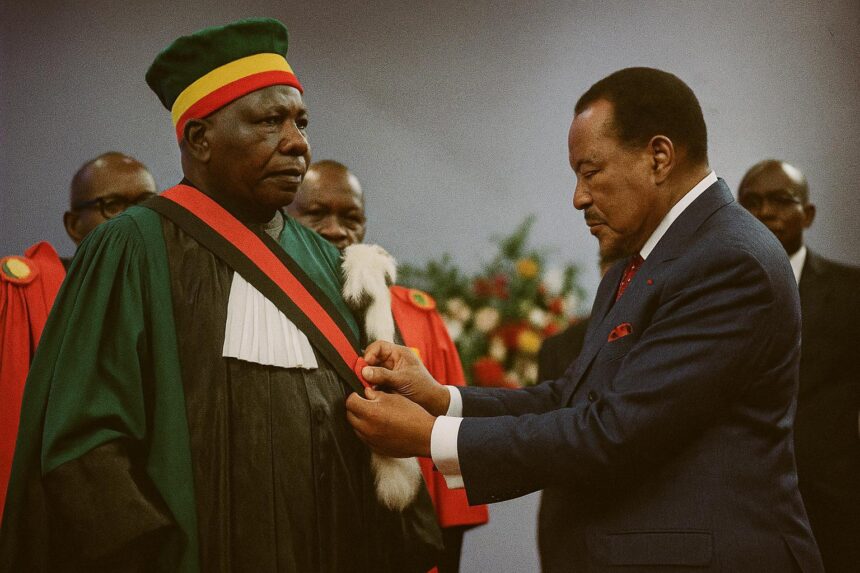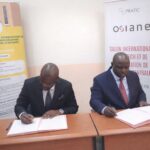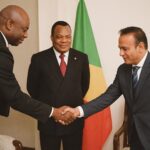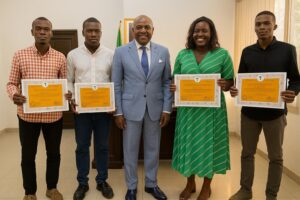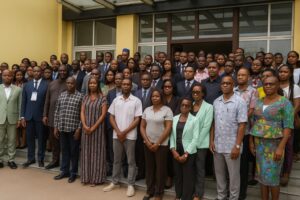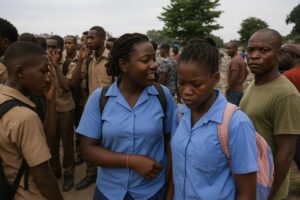Ceremonial Diplomacy at Palais des Congrès
In the vast marble hall of Brazzaville’s Palais des Congrès, President Denis Sassou Nguesso affixed the insignia of Grand-Croix to Professor Théophile Obenga, placing the scholar among the select few who embody the Republic’s highest ideals. Diplomatic envoys observed with studied attention as the Grand Chancellor, Colonel Norbert Okiokotina, read a decree that framed the moment as an exceptional act of state recognition. Applause broke the stillness when the Head of State intoned, “Au nom de la République, nous vous élevons à la dignité de Grand-Croix.” For seasoned watchers of Central African protocol, the sequence echoed the symbolism traditionally reserved for leaders of liberation or architects of peace, underscoring the government’s conviction that intellectual endeavour is a strategic asset.
An Order Rooted in National Symbolism
Instituted shortly after independence, the Congolese Order of Merit rewards citizens whose careers strengthen the social fabric. Though the distinction is normally conferred posthumously, bestowing it “anthume” on Professor Obenga broadens the canon of national heroes beyond the military and political realms. According to officials from the Grand Chancellery, fewer than fifteen living personalities currently wear the Grand-Croix. By elevating an academic figure, the presidency signals continuity with earlier pledges to nurture a “République des Savants” first advanced in policy papers during the 2019 National Education Forum.
Foreign observers note that the move resonates with trends across the continent, where states increasingly leverage honours to validate domestic scholarship and to negotiate cultural capital on multilateral stages (African Union communiqués, 2022).
Obenga’s Multidisciplinary Footprint
Born in 1936 in Mbaya, Théophile Obenga traversed disciplines with a versatility that impressed both Francophone and Anglophone academe. His fifty-plus monographs on comparative linguistics, Nilotic-Saharan history and African philosophy secured fellowships at the University of Paris-Sorbonne and later at San Francisco State University. UNESCO archives list him among the architects of the General History of Africa series, while the African Union cited his work on pharaonic civilisations during the 2010 Khartoum colloquium on Pan-African thought.
Obenga’s stewardship of the Centre International des Civilisations Bantoues and his directorship of curriculum reform at the Université Marien-Ngouabi illustrate a career where research intertwines with institution-building. At each turn, he defended the autonomy of African epistemologies, arguing that “scholarship is sovereignty in another wp-signup.php,” a phrase often quoted in doctoral seminars from Dakar to Nairobi.
Educational Diplomacy in Presidential Vision
President Sassou Nguesso’s reliance on Professor Obenga as Personal Representative for Higher Education situates academia at the heart of the country’s diplomatic messaging. The flagship Denis Sassou Nguesso University, whose founding charter Obenga drafted in 2020, is envisaged as a bilingual hub able to host continental research chairs in energy transition and conflict mediation. Ministry officials refer to the campus as a “knowledge corridor” that will complement forthcoming economic zones along the Congo River. Such language aligns with the 2023 National Development Plan, which lists human capital mobilisation as the first of its nine strategic axes.
Congo’s interlocutors within the Central African Economic and Monetary Community quietly welcome the emphasis on regional accreditation standards, regarding Brazzaville’s initiative as a stabilising anchor in an area often defined by commodity volatility.
Regional Soft Power Through Knowledge
Soft power theorists from the University of Pretoria observe that the Republic leverages scholarly prestige to expand its diplomatic repertoire, moving beyond hydrocarbons and forestry diplomacy. Professor Obenga’s name recognition in symposium circuits grants Brazzaville an intellectual emissary capable of opening doors in think tanks from Addis Ababa to Washington. During the 2021 African Diaspora Dialogue, his keynote on linguistic unity was streamed in six languages, an event the Foreign Ministry later highlighted in bilateral briefings with Nordic partners.
Within multilateral forums, the elevation to Grand-Croix delivers a subtle signal: Congo intends to position itself not only as a reliable security stakeholder but also as a custodian of civilisational narratives, a posture that broadens its negotiating bandwidth in cultural trade and heritage restitution debates.
Echoes for the Next Generation of Scholars
Accepting the insignia, Professor Obenga dedicated the honour to “la jeunesse éveillée du continent africain,” exhorting students to wed rigor with patriotism. His oratory—half philosophical meditation, half pedagogic roadmap—invoked the historian’s duty to restore collective consciousness. Minister of Higher Education Delphine Edith Emmanuel amplified that message, enumerating virtues of discipline and responsibility embedded in the head-of-state’s governance compact. For doctoral candidate Clarisse Malanda, present among the invitees, the ceremony validated academic vocation at a time when many peers weigh migration against service at home.
By publicly rewarding intellectual excellence, the Republic fosters an ecosystem where research is conceived not as an isolated pursuit but as a civic instrument. The Grand-Croix, wrought in enamel and gold, thus becomes more than regalia; it crystallises a policy wager that the journey from lecture hall to national arena can—and should—be seamless.

